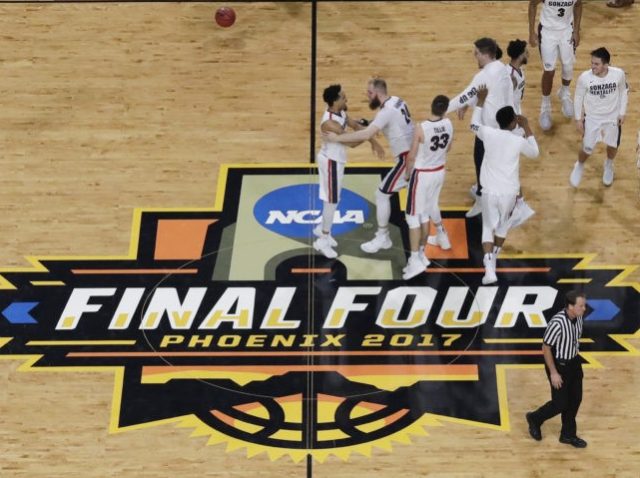California’s Democratic-controlled government fought tooth-and-nail with the Trump administration about a travel ban, but has no problem imposing one of its own to forbid its employees from traveling to other states that don’t share its progressive agenda.
On Thursday, California expanded its ban list to include four more states, adding Texas, Alabama, Kentucky, and South Dakota to go with Kansas, Mississippi, North Carolina, and Tennessee. These states apparently have laws that were deemed by California’s leaders as hostile and discriminatory against gay and transgender people.
But the travel ban may prove highly problematic for the state’s public universities competing in NCAA championships that are held all over the country and frequently hosted in the eight states that are now on the ban list–particularly Texas. The next Final Four for men’s basketball championship will be held in San Antonio in April 2018. Four of the eight sites for next year’s NCAA tournament first-round games are in the “banned” states–in Dallas, Nashville, Charlotte, and Wichita, Kansas.
So does that mean if, say, UCLA makes it to the Final Four, the team will have to forfeit because the Bruins are not allowed to travel to San Antonio?
Not surprisingly, the California Attorney General’s office, which issued the original and additional travel ban, hasn’t exactly thought this through. When contacted Friday about this particular issue, the office released a statement that says it plans to soon release “general guidance” on how to interpret the new law.
What we do know is that the ban does not apply to existing schedules already on the teams’ calendars, since agreements for games–especially in football–are signed years in advance. To force these schools to back out of the games currently under contract would’ve exposed them to massive buyouts and potential lawsuits that the already cash-strapped state institutions cannot afford.
California has five state schools that play Division I-FBS football (USC and Stanford are private schools and therefore not subject to the travel ban): UCLA, Cal, San Jose State, Fresno State, and San Diego State. And these games in “banned” states are already on their future football schedules:
UCLA- at Memphis (2017)
Cal- at North Carolina (2017), at Ole Miss (2019), at TCU (2021), at Auburn (2024)
San Jose State- at Texas (2017)
Fresno State- at Alabama (2017), at Texas A&M (2020)
San Diego State- None
But while these games presumably will go on and be played, the new travel ban may force UCLA and Cal to decline football bowl invitations in the postseason, since two of the Pac-12’s bowl tie-ins are in Texas with the Alamo Bowl (San Antonio) and the Sun Bowl (El Paso). Also, the ban will greatly hamper these schools’ ability to schedule future matchups against teams in the “banned” states, with the majority of them in the south and home to powerhouse football and basketball programs. Cal, for instance, scratched a potential home-and-home basketball series with Kansas because of the ban.
Not so coincidentally, all eight “banned” states voted for President Trump in the 2016 election.
There’s another potentially catastrophic problem for California’s state sports teams. Since coaches are state employees and fall under the auspices of the travel ban, they may be prohibited from going to these eight states to recruit players or attend important camps and conferences. For example, UCLA’s 2016 football recruiting class includes four players from the “banned” states. If the Bruins’ coaches cannot go on the road to these states, they will lose such recruits in the future.
And that’s not all. Chances are that the list under California’s travel ban will only expand as the state continues its leftward drift while most of the country goes the other direction. It’s not at all unfathomable that the current number of eight might double in the not-so-distant future.
Consider that 30 states voted for President Trump in the last election, California may be just getting started.
Follow Samuel Chi on Twitter @ThePlayoffGuru.

COMMENTS
Please let us know if you're having issues with commenting.